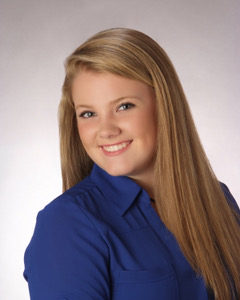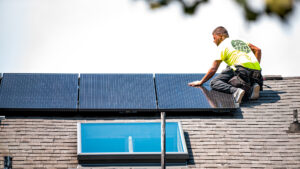By Nicole Bergmann, FAU School of Communication and Multimedia Studies
The following is a Q&A conducted with Delaney Reynolds, a graduate student at the University of Miami. Unlike most graduate students, Reynolds is the CEO of her own nonprofit, the Sink or Swim Project; the author of three children’s books and counting; and a climate change activist who has spoken around the country. She was also one of the plaintiffs in a lawsuit against Florida’s state government over climate change. The questions were posed to her by Florida Atlantic University student Nicole Bergmann.
What made you first become interested in the environment? I read that you grew up in No Name Key, and that had an impact.
I did grow up part time in No Name Key. I knew from a really young age I wanted to do something in the environment. In between elementary and middle school I illustrated and wrote three children’s books based on the Keys. That’s how I learned about climate change. Science is daunting. I ultimately decided that I wanted to write my fourth book on climate change. I wanted to explain it to people who don’t have a science background. My readers could put themselves in the shoes of flood victims.

What are your career aspirations? Are they more focused in the law or science field?
Science has always been my first love. I majored in marine science and geology with a minor in climate at Miami. But I started to get involved at the state level. I sued the state for climate stuff. You can’t really talk about climate change without talking about policy. I definitely see myself in the policy realm. Basically I am looking at sea level solutions and how effective they are.
Why do you feel it’s difficult to make policy changes in Florida, when it could become the most impacted state by climate change?
Florida is a very special place, our politics to say the least. We have a lot of deniers in office. At the grassroots level we have a lot of great things going on in Miami. At the state level we are not seeing much being done.
Do you feel that Gov. DeSantis has had a positive impact on environmental change in Florida?
DeSantis talks about the environment, but not about climate change directly. He’s a smart guy, he knows what’s going on. He went to Harvard and Yale. He’ll talk about the Everglades but he will never talk about climate change. He’s supported by a lot of fossil fuel companies.
Who did you sue and why?
I worked with the Our Children’s Trust. Our legislative branch wasn’t doing anything, so I decided to do something at the judicial branch. I read about Our Children’s Trust suing the federal government. I was like, that’s an amazing way to get attention to the subject. By polluting our atmosphere we are not protecting our environment, and that is putting young peoples’ rights at risk. I emailed the lawyers. They wrote me back about starting a lawsuit in Florida. They asked if I wanted to be a plaintiff.
Eight of us sued the state of Florida, Rick Scott, and his Cabinet for not upholding their duty in the Florida Constitution and public trust doctrine. Both of those say the government has the duty to protect our environment. That was the basis of the lawsuit, was that they are infringing on our rights to life, liberty and property. Two years after the lawsuit we had our first hearing. We were reassigned a judge three times. One sentence response, and the case was dismissed.

We got to work with the Committee of Agriculture and Nikki Fried. We created a rule, lots of kids signed for the Department of Agriculture and Consumer Services to promise Florida to reach 100% renewable energy by 2050. … There’s potential for the next commissioner of power center to try undo that rule.
Can they undo that?
It is mandatory that they follow.
How do you grapple with caring so deeply about a cause that so many people refuse to even believe to be true?
It’s difficult. It’s a dark subject. It’s a scary subject. It’s become such a partisan issue and it shouldn’t be. Climate change doesn’t see blue or red. It’s drought and it’s wildfire, it could lead to the extinction of the human species if we don’t do anything about it. The target audience of my work isn’t deniers. I think the best use of my time is to move forward.
What gives you hope for change?
Working with other youth is what motivates me to keep going and gives me hope for the future. Kids often have more questions and better questions than adults. Little things like that give me hope. I think we are going to be the generation to solve climate change because of that.
This Q&A was conducted by Nicole Bergmann, a junior majoring in multimedia studies at Florida Atlantic University.



